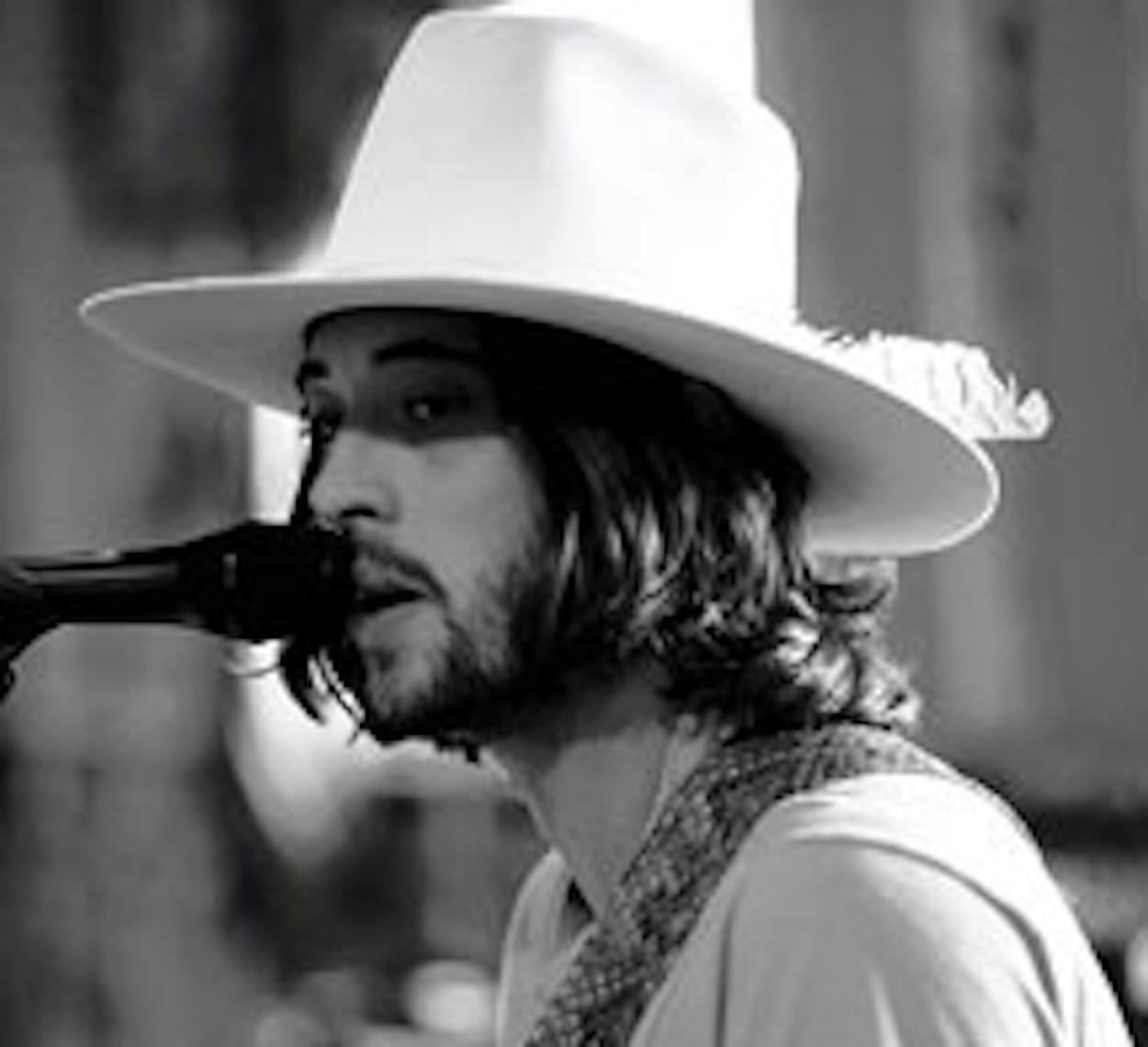At first, it’s difficult to take the 28-year-old Bingham’s tales of traveling a long, hard road seriously. Yet the bull-rider-turned-country-rocker endured a tough West Texas upbringing and then spent many lean years on the rodeo circuit. His rough-hewn 2007 album, Mescalito, brought him much public acclaim, and he’s just released the follow-up, ROADHOUSE SUN (Lost Highway).
You were born on a family ranch in Hobbs, New Mexico, but you moved around a lot as a kid. We shuffled around West Texas. I went to Houston and Laredo and back up around Fort Worth and back to West Texas and everywhere in between, just living out of packing boxes.
How did you get into the rodeo scene? My uncle rode bulls professionally and he got me into it. I started riding steers when I was about eleven and he started taking me to little jackpots and I really got into it.
At some point you graduated to full-scale, two-thousand-pound bulls. When I turned thirteen, I moved up to the junior bull scale. They didn’t really classify them by how big they were but how bad they were. The first time I got on one of the big boys I was absolutely terrified but excited at the same time.
At what point did you start making a living out of it? I always had to have a day job, working on other people’s ranches or construction or whatever. I was making a little bit of money rodeoing, but between the both of them it wasn’t much of a living.
You didn’t start playing music until relatively late. I was about sixteen and my mother had bought me a guitar for my birthday. A guy that lived next door showed me a few chords. After that, going to these rodeos, I would take my guitar and write songs in the backseat.
Some friends helped you make a record in 2005 that ended up in the hands of Terry Allen, who would invite you to a party in Marfa that would change your career. It was actually him and [his wife] Jo Harvey. For their wedding anniversary they had a party in this little bar called Ray’s. Everybody was there: Joe Ely, Robert Earl Keen, Butch Hancock, David Byrne. I became friends with Joe. I had been working for a rodeo, but I was still kinda homeless. Joe let me open up some shows for him and sleep on his couch in Austin. That’s when the folks from Lost Highway saw me play with Joe at the Cactus Cafe.
Where did you meet [producer and former Black Crowes guitarist] Marc Ford? In L.A. I had this record, but I didn’t want to give it out to a lot of people. We ran into Marc and I had this stuff with Lost Highway coming up. I said, “Maybe we can go into the studio and strip it down and rework it some.” That’s basically what we did for Mescalito.
How much is he responsible for the raw, seventies Rolling Stones sound? A lot of that’s Marc. But I had run into this guy in Texas that started playing drums with me, Matthew Smith, and a lot [of it] was how we sounded live.
You’ve used Marc again for your new album. It’s even rawer, louder, and more gritty than the previous record. All right!
You’d be hard-pressed to call it country music. I’m not a big fan of country music these days. I like a lot of the older country stuff. Shoot. We actually do really good in punk rock clubs. I don’t really know where our fan base lies.
Your nomadic days aren’t over, but you have settled down. I’ve got the first house I’ve ever had in my entire life, with my own name on the mailbox. I moved out to Topanga, California, and have been hanging out in this canyon up here. I’ve mostly lived in Texas all my life. It’s kind of a nice change to be somewhere different for a while.







